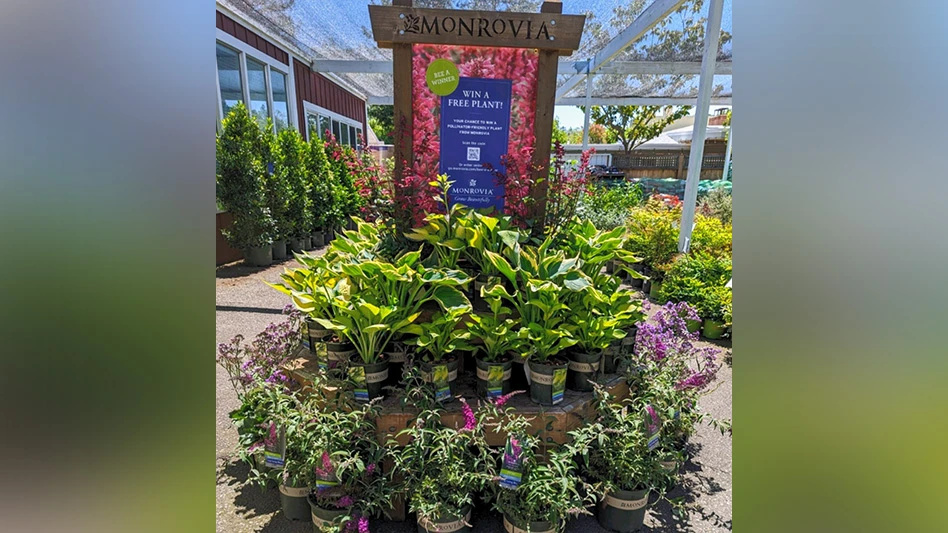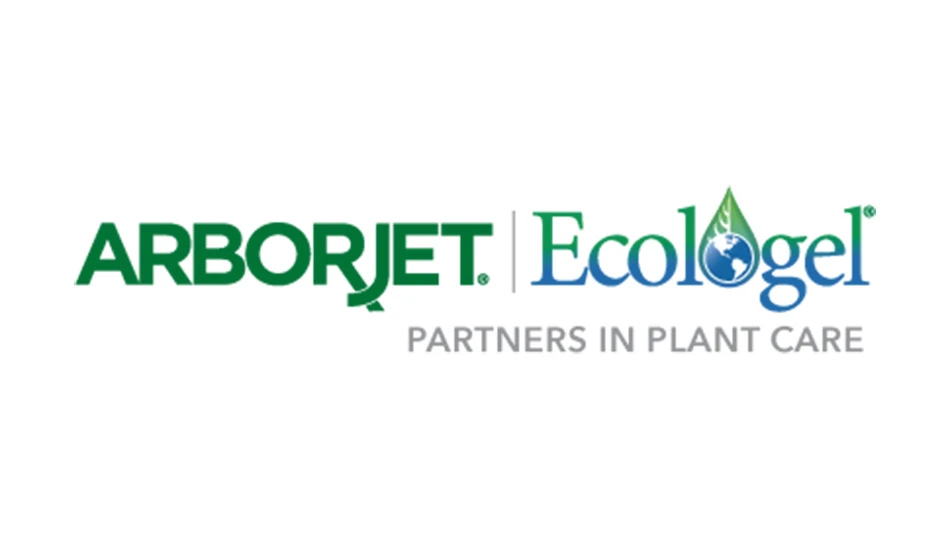
When Dorothy Russo, chief of growing operations for Al’s Garden & Home, plans production schedules, she has four demanding customers in mind: Al’s three established, Portland, Oregon-area retail garden centers and a new retail store that opened in March 2017.
Russo’s crews grow 80 percent of all plant material sold at Al’s, No. 16 on Garden Center’s Top 100 Independent Garden Centers List, where 2016 retail sales hit $14.9 million. A closer look at soft-stemmed annuals and perennials reveals the percentage of Al’s-grown product swells to 95 percent. For this grower-retailer, keeping the big picture in mind keeps both sides of the company healthy and thriving.
Focusing on facilities
Al’s growing operations span three facilities and a full spectrum of plants. A small range in Gresham, Ore., provides 2.5 acres of covered, heated and tabled growing space devoted to specific annual crops. A 12-acre, pot-in-pot facility in Mt. Angel houses tree and shrub production for five-gallon pots and larger. But the heart of Al’s growing operations is The Farm, located 40 minutes outside Portland in Hubbard.
The Farm includes 8.5 acres of heated and covered greenhouses and 1 acre of covered, unheated greenhouses, along with 3 acres of farmland. This is where the bulk of Al’s two million annuals — from 36-pack trays to oversized city baskets — are produced, along with all the company’s perennials and 3-gallon and smaller woody materials.
Only a small portion of Al’s-grown product reaches a wholesale clientele, which accounted for $500,000 in sales in 2016. The company deals with a few landscapers, but fundraisers — mostly baskets and poinsettias — comprise about 75 percent of its wholesale sales. The rest of Russo’s production has one destination: Al’s Garden & Home’s retail locations.
Growing for a guaranteed customer
Being a grower-retailer has advantages that wholesale-only growers may envy. “We have a guaranteed customer for our product,” Russo says. “I have four solid retail stores that I know have to come to me first. That’s a good thing.” High quality expectations at retail serve to keep production standards high as well. The flip side of the equation is there’s no other outlet when retail traffic suffers due to bad weather. “When they’re bleeding, I’m bleeding,” Russo says.
Al’s chief of operations Mark Bigej, Russo’s brother, oversees the company’s retail operations and relishes their position. “One of things I love most about having our own growing operation is we know we’re their number one priority for delivery — because they don’t deliver to anyone else,” Bigej says. Al’s stores get trucks seven days a week during peak, a clear advantage over competitors. “We constantly have fresh product that looks awesome and keeps our tables full,” he says. “That’s very impressive to our customer.”



Converting customer requests to finished product
Al’s retail and growing teams work closely to ensure store needs are met. Russo’s head grower regularly tracks sales by variety, identifying where stores needed more or less stock. The two sides then come together seasonally for lengthy “summits” on what they’ve seen. “We get that direct feedback from our retail stores,” Russo says. “We cut the middle man out, which makes it really nice for our business.”
Edibles and color lead trends, but additional customer preferences impact production. Tray pack annuals such as seed marigolds have shifted from 48-pack to 36-pack, so customers can buy three plants instead of six. “We’re also seeing trends toward more vegetative annuals — things to plant in planters instead of mass row plantings,” Russo says.
Bigej emphasizes their responsiveness to customer wants. “We are able to dictate exactly what our customer is asking for, and it’s a quick turnaround. With outside vendors, it might take a few years to get that product,” he says. “We tell them what we’re looking for; they figure out if we can grow it and make money. If the answer is yes, we have it the next year.”
Managing staffing, seasonality and stress
February kicks off Russo’s busiest season. Staff climbs from 33 year-round employees to 50, and production hits high gear in weeks 6 through 9. The schedule stays packed through March. As retail ramps up, production shrinks. “Most of our production is already in the ground. We just need to finish it and depend on them to sell it,” Russo says. No employees shift between production and retail.
Retail peaks from April 1 through May 31, building to and descending from Mother’s Day weekend. Seventy-five to 80 seasonal workers come onboard retail beginning in February and ramping up to April. Retail runs at full staff through May, then drops to 75 regular full-time employees by July 1.
Al’s growing operations enjoy low turnover, but Russo works to reduce seasonality. One successful avenue is their work as a rooting station for five major plant breeders. “Through our rooting station, we can keep those employees year-round. That’s important to them to know they have security here,” Russo says. Crews produce about one million rooted cuttings in December and January, boosting wholesale sales by $500,000 annually.
Throughout Al’s, staff don’t rely on special programs to navigate seasonal stress. “A weird camaraderie develops during the busiest part of the season, because everyone sees what’s going on,” Bigej says. “The busy season is a kind of natural glue that just binds everybody together.”



Thriving in a demanding market
The Portland area’s leading role in national trends creates a demanding regulatory and consumer environment. “With pest control, we’re constantly evolving,” Russo says. “In Oregon, we have strict regulations on things we can and can’t use. We are always trying to use less, and try new things to keep pest management under control. The neonic thing is huge out here, so we’ve just had to find alternatives.”
Demand for organically grown product is also strong. “We are not certified organic, but all of our edibles are done organically,” Russo says. “We have switched to an organic soil, organic feed, and we grow our vegetables in coir pots to get our organic message across in our edibles line.”
Another national trend impacting Al’s retail and growing operations is the interest in local products. “Grown by Al’s” is becoming increasingly important to customers. The company’s marketing efforts reflect that awareness.
“It’s a huge advantage for us and something our customers really appreciate, if they realize it,” Bigej says. “We live it — it’s like ‘Of course we grow it!’ — but our customers really don’t understand that. We’re pushing hard to make sure they do.” A series of “Grower’s Choice” videos and posts puts Al’s growers front and center via the company’s website and social media as part of that initiative. To see the Grower’s Choice and other videos by Al’s, visit bit.ly/2njS0tX
Sharing a commitment to communication
For Russo and Bigej, the secret to survival lies in strong communication between retail and production. Though a stumbling block in some family-owned businesses, their commitment is strengthened by the fact that they’re siblings and grandchildren of the company’s founder. But Russo and Bigej don’t leave communication to chance.
“What has made us successful and what we continue to work on to stay successful is an open line of communication. That’s where Dorothy and I really work hard,” Bigej says. “Fortunately, unlike many siblings, we get along very well. There’s an openness and willingness, and a back and forth. We have an eye on the big picture. We understand our end goal and work hard to work together.”
Russo agrees. “Mark and I work hard at keeping the relationship between retail and the wholesale piece tight, and keeping everybody on the same page. Keeping that relationship solid is constantly foremost in our thoughts. The reason we’ve been able to be successful is that we are one company. We don’t survive without them, and they don’t survive without us. It’s a survival thing,” she says, whatever the season.

Explore the July 2017 Issue
Check out more from this issue and find your next story to read.
Latest from Garden Center
- This Florida garden center's busiest days are in the fall, not spring. Find out how they do it
- Terra Nova Nurseries releases new agastache variety, 'Peach Pearl'
- The Certified Shopify Online Garden Center provides local retailers with ecommerce tool
- Meet the All-America Selections AAS winners for 2025
- Endless Summer hydrangeas and Suntory Senetti glam up Grammys red carpet
- Ball Seed releases 2025 edition of 'Thrive and Flourish' for landscape and garden retail
- American Floral Endowment's Fred C. Gloeckner Foundation Research Fund accepting grant proposals
- Floral Marketing Fund and CalFlowers partner to advance floral industry





